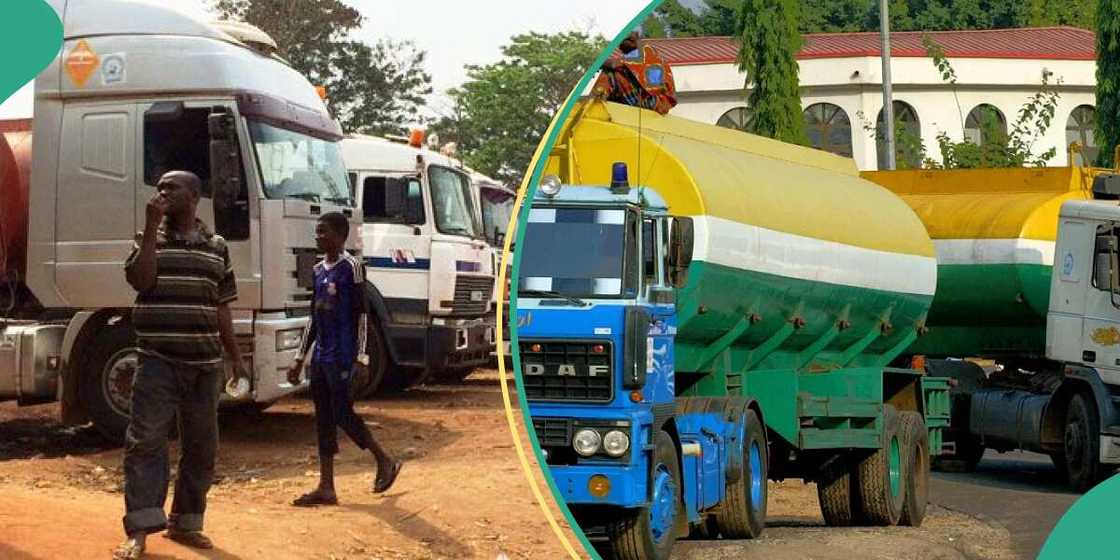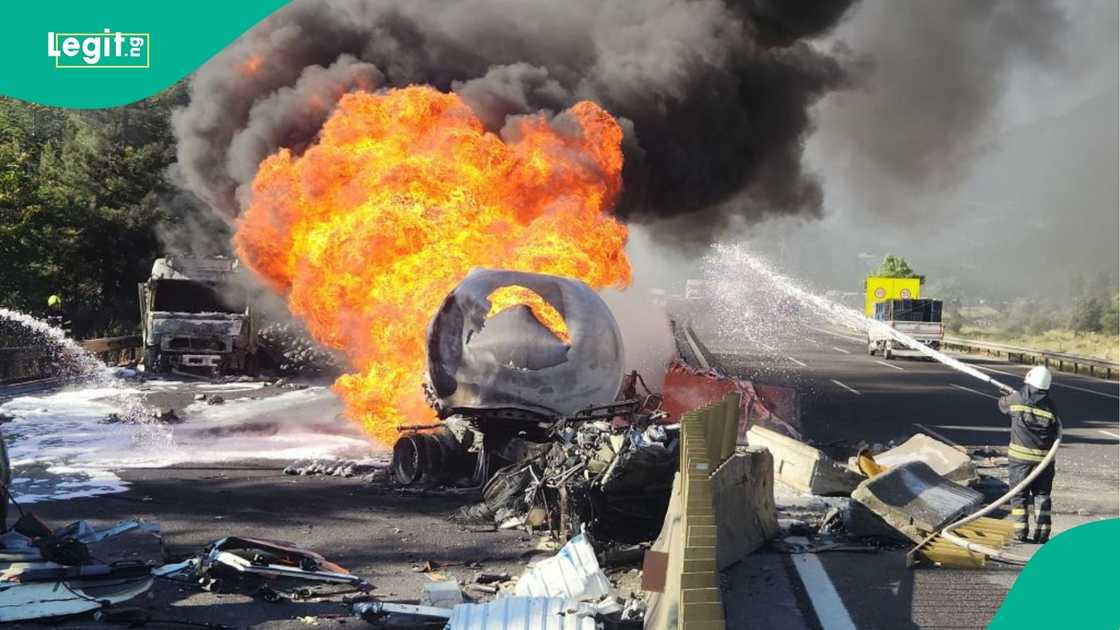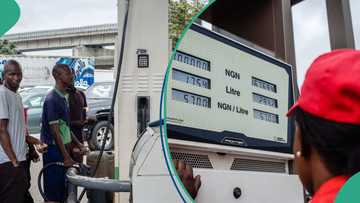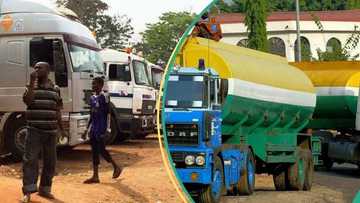Investors to Lose N300 Billion as FG’s Ban on High-capacity Fuel Tankers Takes Effect in Few Days
- Investors are worried over the latest federal government directive to ban high-capacity trucks from operating in Nigeria
- The federal government declared a ban on 60,000 litres trucks conveying petroleum products across Nigeria
- Thousands of trucks are affected by this directive, leaving investors worried about how to make returns
Legit.ng journalist Ruth Okwumbu-Imafidon has over a decade of experience in business reporting across digital and mainstream media.
There is now a prevailing worry in Nigeria’s downstream petroleum sector, over the government ban on high-capacity fuel tankers from Nigerian roads.
This new directive is projected to affect up to 2,000 tankers, meaning a massive loss of investments valued at N300 billion.
Some are also concerned that banning 2,000 fuel tankers could significantly disrupt fuel distribution and supply across the country, leading to a scarcity of petroleum products.

Source: UGC
FG bans fuel tankers with 60,000-litre capacity or more

Read also
"It is a national emergency": Telecom operators warn of network blackout in two Nigerian states
The federal government announced its decision to ban high-capacity fuel tankers of 60,000 litres and above from operating on Nigerian roads due to the high number of accidents involving fuel tankers in recent years.
The Nigerian Midstream and Downstream Petroleum Regulatory Authority (NMDPRA), issued the directive to operators, noting that it would take effect on March 1, 2025.
The core reason for the move was to cut down the increasing number of road accidents that have led to the loss of lives and properties.
Nigeria has recorded several tragic road accidents, often leading to fire explosions caused by fuel tanker crashes.

Source: Getty Images
Stakeholders say N300 billion investments at risk
Reacting to the ban, Mr. Yusuf Othman Lawal, the National President of the National Association of Road Transport Owners (NARTO), said that N300 billion of investments are at risk because of this ban.
He explained that up to 2,000 fuel tankers would be affected by the move, and with each truck costing an average of N150 million, it amounts to about N300 billion at risk, the DAILY SUN reports.

Read also
NMDPRA explains why fuel importation continues despite Dangote, PH, Warri refineries' operations
He observed that NARTO members own and operate about 10,000 fuel tanker trucks across Nigeria, many of which were purchased with bank loans and are yet to be fully paid up.
Othman noted that while complying with the government directive, they will also be looking for ways to mitigate the impact on their members.
Recall that the NNPCL announced a purchase of 500 new CNG-powered trucks with smart technologies installed to prevent road accidents.
FG needs to do more
Mr. Adeola Yusuf, the energy policy analyst at Platforms Africa, noted that while the government’s move is commendable, it is not sufficient to solve the problem of fuel tanker accidents.
He observed that the bad state of roads across Nigeria is a huge contributing factor, and so the NMDPRA must look into providing an alternate means of transporting petroleum products, by fixing the pipelines so that petroleum products can be moved from the refineries straight to where they are needed.

Read also
FG bans 60,000-litre fuel tankers, others from Nigerian roads, gives date for implementation
Yusuf suggested further checks to ensure the good condition of trucks and fuel tankers before they are allowed to transport petroleum products.
He further recommended rail transportation for the move of petroleum products as is done in other countries, so that Nigerians are not unnecessarily exposed to the inflammable product.
FG soon to ban 45,000 fuel tankers
In an earlier report by Legit.ng, the executive director of Distribution Systems, Storage, and Retailing Infrastructure at the NMDPRA, Ogbugo Ukoha, stated that the ban of 60,000 fuel tankers was the first of 10 resolutions reached with the stakeholders.
He disclosed that other resolutions were made towards eradicating fuel tanker accidents from Nigerian roads, and more will be implemented as the year proceeds.
Ukoha hinted that by Q4, 2025, the ban would extend to include fuel tankers of 45,000 litres and above until the government completely eradicates fuel tanker accidents from Nigerian roads.
Proofread by Kola Muhammed, journalist and copyeditor at Legit.ng
PAY ATTENTION: Сheck out news that is picked exactly for YOU ➡️ find the “Recommended for you” block on the home page and enjoy!
Source: Legit.ng



